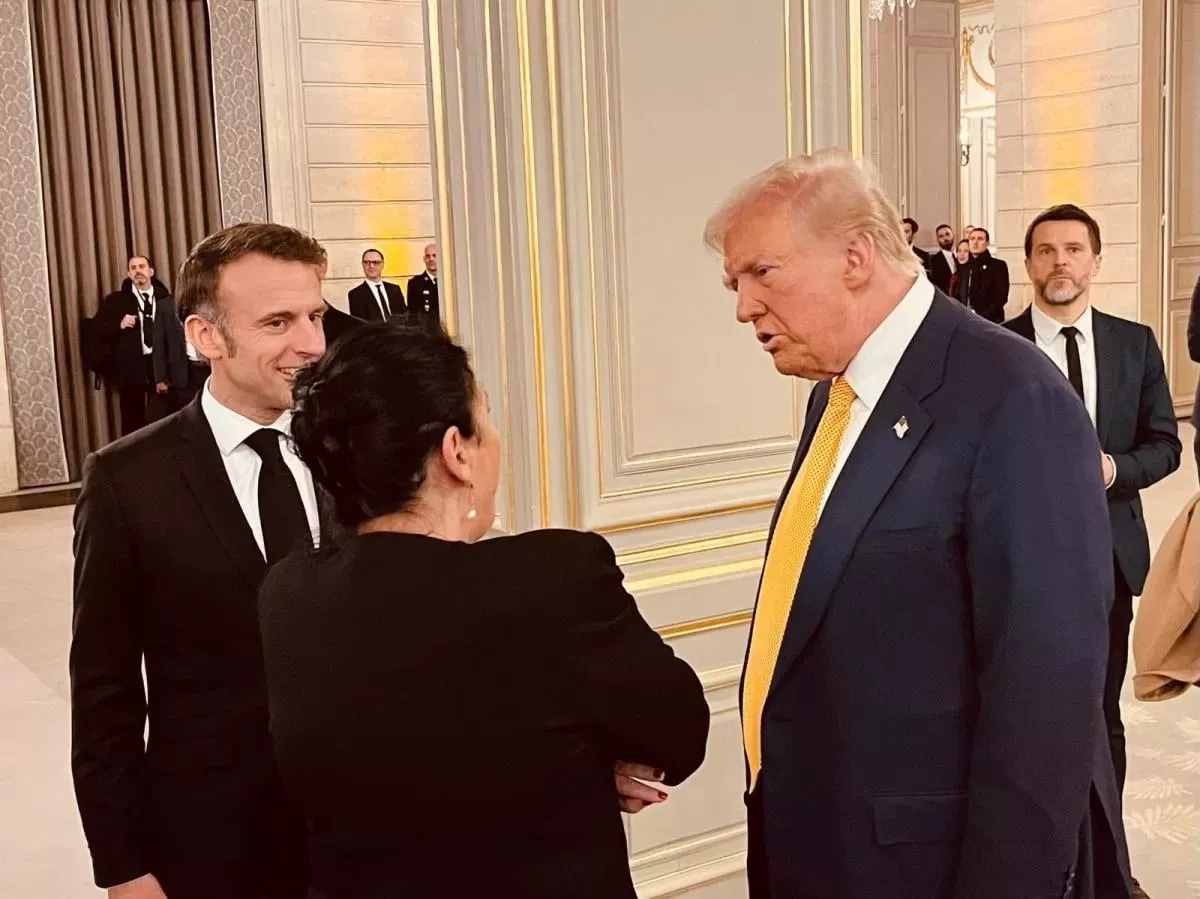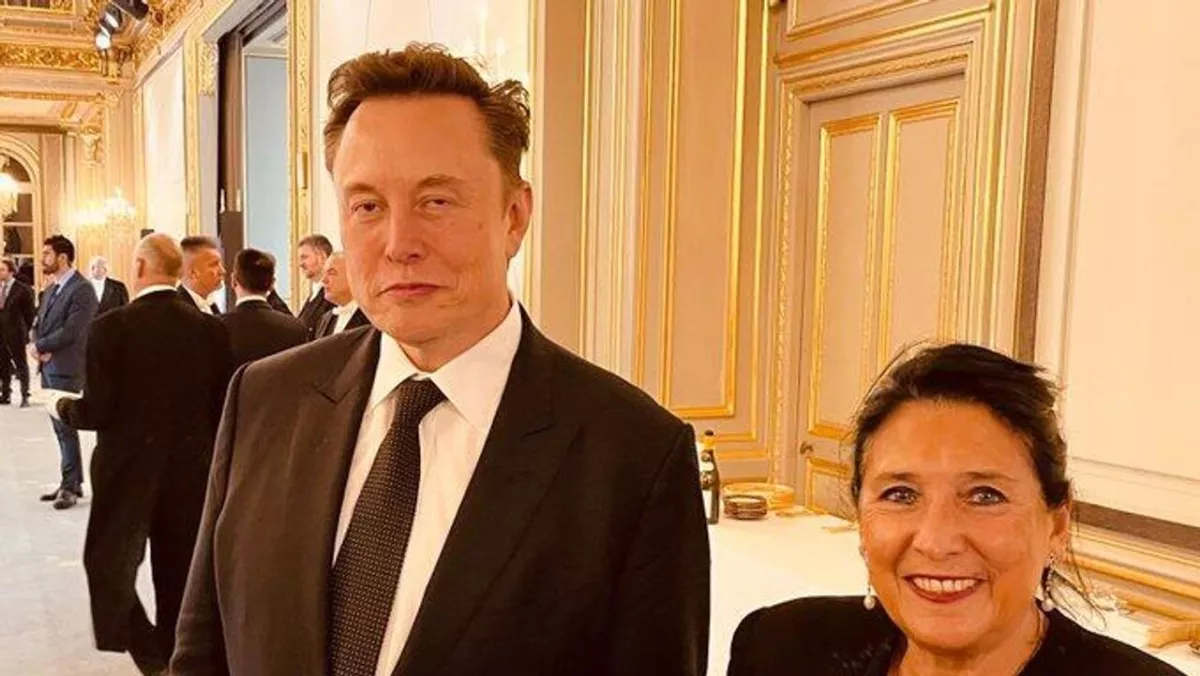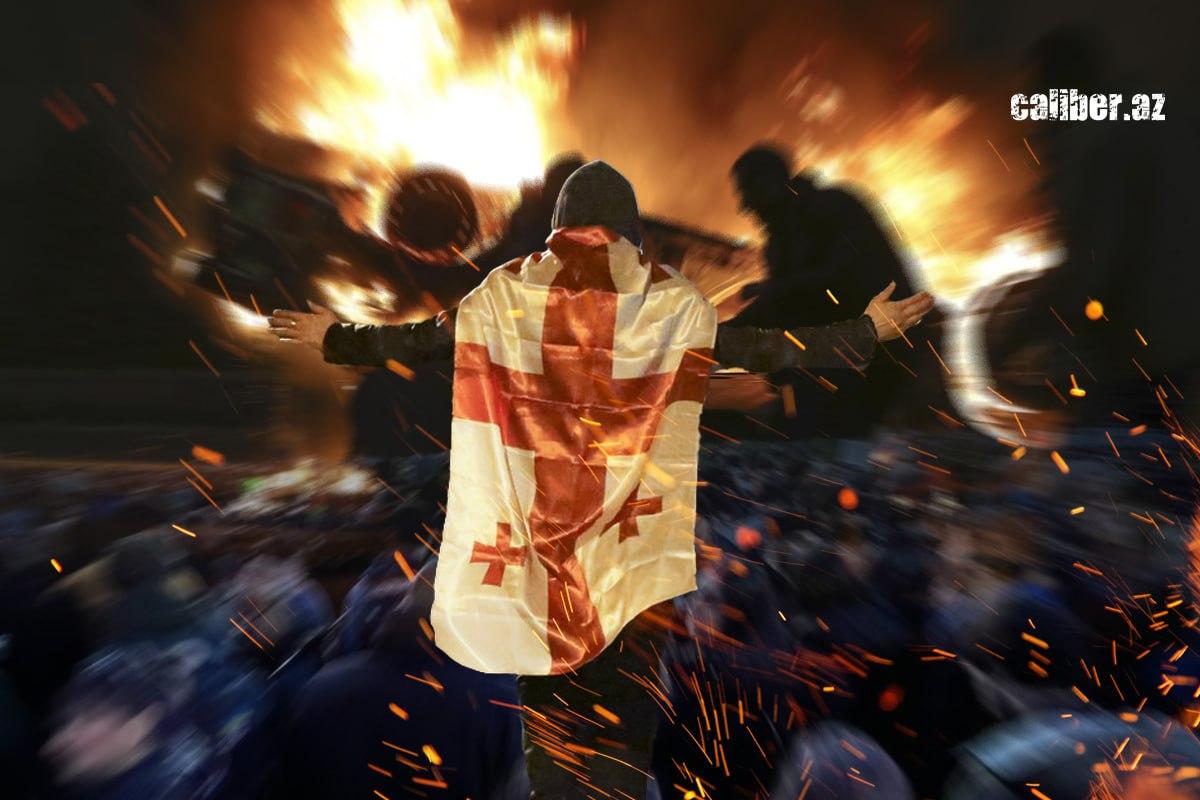Macron as a promoter of chaos and confrontation in Georgia Article by Vladimir Tskhvediani
The situation in Georgia remains complex. In fact, President Salome Zourabichvili, who is leading the attempt for a "Maidan-style" coup, and whose term expires on December 29, 2024, is doing everything she can to internationalize her claims, even declaring herself to be the "only legitimate authority." She is being assisted in this by the President of her home country, France's Emmanuel Macron.
On December 7, President Macron made full use of his political influence to promote his protégés in the South Caucasus — Nikol Pashinyan and Salome Zourabichvili — at the ceremony marking the reopening of the Notre-Dame Cathedral in Paris, after it was restored following the fire.
At Macron's invitation, the opening ceremony of the cathedral was also attended by U.S. President-elect Donald Trump and American billionaire Elon Musk. The French president successfully arranged a series of high-profile "meetings and photo opportunities" with Salome Zourabichvili, who was nearing the end of her term as President of Georgia. Judging by Donald Trump's expression, he didn’t appear particularly enthusiastic about being part of this PR stunt involving Zourabichvili, whom Macron had effectively foisted upon him. Nevertheless, the footage from their "behind-the-scenes" meeting with Trump and Macron allowed Zourabichvili to confidently declare: "In depth discussion with Presidents Trump & Macron. Exposed the stolen election and extremely alarming repression against the people of Georgia. Underscored the need for a strong US. The Georgian people have a friend in Donald Trump. God bless the United States of America."

Salome Zourabichvili also shared a photo on social media with Elon Musk, the future head of the new U.S. Department of Government Efficiency, taken during the opening ceremony of Notre-Dame Cathedral. Musk's expression in the photo also clearly indicated that the photo op with Zourabichvili did not bring him much joy.

The paradox of Zourabichvili's meetings and photo sessions with Trump lies in the fact that, by the time of the inauguration of the newly elected U.S. president on January 20, 2025, Salome Zourabichvili will not only cease to be the president of Georgia, but will also be required to vacate the presidential residence. However, it appears that Zourabichvili, whom many consider a "French agent," has no intention of doing so. Instead, she seems set on organizing a forceful confrontation with the legitimate government of Georgia, leading to a political scandal, if not an outright conflict. To this end, the organizers of Georgia’s "Maidan" have already launched a rather devious, multi-step special operation to effectively "legalize" their unlawful armed formations.
Similar to the "Maidan" protests in Kyiv in 2013-2014, groups of individuals known as "titushki"—allegedly pro-government supporters—emerged in Tbilisi on the night of December 7-8. These masked and balaclava-wearing individuals attacked opposition members and journalists on the streets of the capital, violently assaulting them. It is clear that such actions were completely unwanted by the "Georgian Dream" government, especially at a time when the protests had started to subside on their own.
This suggests a deliberate provocation orchestrated by the organizers of the Tbilisi "Maidan". The provocateurs in masks and balaclavas, who were immediately labeled "titushky," were unleashed on the streets by the opposition. This was done deliberately after the authorities conducted searches at opposition offices and arrested the organizers of the unrest. The goals of these provocations are also clear: the beatings of opposition members by "titushki" not only mobilized the opposition’s supporters, who had begun to lose interest in the protests, but also provided a pretext for the opposition to form its own illegal paramilitary structures. This was particularly effective if the organizers of the "Maidan" could, with the help of provocateurs, shed blood or offer "sacred sacrifices."
By the evening of December 8 and into the night of December 9, so-called "self-defense squads" began to form in Tbilisi. Officially, these squads were created to protect protesters from the infamous "titushky," allegedly hired by the government to attack participants in the demonstrations. These squads began recruiting young, physically fit men and establishing a system of command and control.

In this way, the opposition, through provocations, deliberately created an excuse to organize its own paramilitary forces, which could potentially become armed at any moment. This, in turn, could trigger either a scenario of an armed coup or civil war. The most dangerous days in terms of escalating the situation may be December 14-16, when the new president of Georgia will be elected and Salome Zourabichvili's mandate will end, and December 29, when the new president will be inaugurated and Zourabichvili will be required to vacate the presidential residence.
The situation in Georgia is far from being normalized. The Georgian police raids on December 4 targeting opposition offices and headquarters, along with the mass confiscation of fireworks and other materials intended for street confrontations, temporarily reduced the level of tension. However, the pro-Western opposition has resorted to new provocations and a change in tactics. It seems increasingly likely that, after her presidential mandate expires, Salome Zourabichvili, who has declared herself the "only legitimate authority," will escalate the situation and attempt to form "parallel" power structures around herself.
What is also dangerous is that French President Emmanuel Macron, who has taken "patronage" over Zourabichvili and the Georgian "Maidan," is simultaneously betting on the creation of a "French military outpost" in Armenia. This means that illegal formations and the self-declared "government" led by Zourabichvili could receive support of any kind from Armenian territory at any moment. As a result, Georgia faces the risk not only of a bloody armed coup but also of a potential external military intervention.
Vladimir Tskhvediani, Georgia, for Caliber.Az








